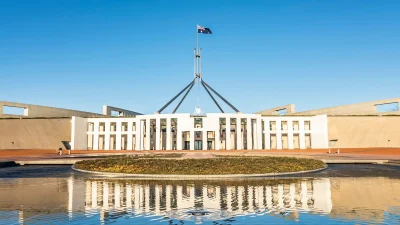The FSC’s alternative ways of demonstrating financial sophistication



When it comes to the wholesale investor test, the Financial Services Council (FSC) believes there is a need for greater awareness that high wealth may not correlate with high financial sophistication.
Appearing before the Parliamentary Joint Committee on Corporations and Financial Services on 4 October, the FSC discussed the wholesale investor and wholesale client test.
This covered possible changes to the wholesale test in light of a growing number of consumers reaching the sophisticated investor threshold as a result of increased residential property values.
In its earlier submission to the inquiry, the FSC had proposed the net asset test be increased from at least $2.5 million to $5 million including the family home, the current income test is maintained at $250,000, and the product value test is maintained at, at least, $500,000.
But it suggested “consideration should be made” to the sophisticated investor limb of the wholesale investor test to allow sophisticated investors, who understand the risks and have sufficient experience, continue to access them.
Chaneg Torres, executive director of policy at the FSC, told the committee: “There is a correlation between wealth and financial sophistication, but not always, and they are not always able to bear risk.
“This newer threshold proposed is a blunt instrument, but it serves a purpose and is easier for financial services firms to apply than the current test.”
Currently, he said, licensees and fund managers are “very hesistant” to apply the sophisticated investor limb in its current form because it is so objective, and they need to be satisfied on reasonable grounds that the client has the relevant understanding to assess the merit and risk of the product.
He suggested the use of an objective test to measure people’s financial understanding to prevent people, for example, receiving a large inheritance and having it invested in a risky scheme which incur frequent losses.
“If that was made clearer, then our members wouldn’t need to rely on the hard, numerical threshold, and you could have instances of people who might not meet that threshold but who can demonstrate objectively that they have financial sophistication, whether through their education or through their business experience.
“It’s not just via a finance degree that can demonstrate sophistication, it’s certainly worthy of consideration to look at whether there are other objective ways of demonstrating that whether by experience or micro-credentials.”
Using the example of how the requirement is administered in the UK, Torres suggested this could include a degree in finance, previous business experience, being a director of a company, or a member of an angel investor network.
As to how this would be moderated, Torres said he would want to avoid more requirements being placed on licensees and fund managers, and evidence could be provided via a certificate or other qualification.
Recommended for you
LGT Wealth Management is maintaining a neutral stance on US equities going into 2026 as it is worried whether the hype around AI euphoria will continue.
Tyndall Asset Management is to close down the Tyndall brand and launch a newly-branded affiliate following a “material change” to its client base.
First Sentier has launched its second active ETF, offering advisers an ETF version of its Ex-20 Australian Share strategy.
BlackRock has revealed that its iShares bitcoin ETF suite has now become the firm’s most profitable product line following the launch of its Australian bitcoin ETF last month.












